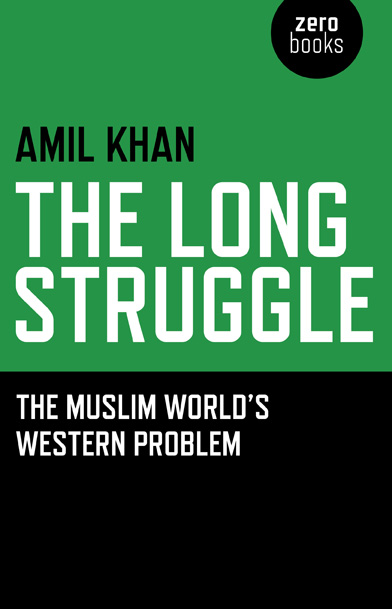Long Struggle, The
The best thing America can do for the Middle East is lose

The best thing America can do for the Middle East is lose
The best thing America can do for the Middle East is lose
Do not use, International relations (general)
In The Long Struggle, Amil Khan explains how a shell shocked Muslim world struggled for over a century between emulation and rejection of the West while international events continued to stoke anger among people who were forced to give up the wealth and global influence they felt was their birth right. But it is not going to continue like that, Khan argues. The forces unleashed by the 9/11 attacks and the wars in Afghanistan and Iraq have forced Muslims to snap out of their dysfunctional relationship with the West. Muslims are finding that Western power is not all conquering and those who present themselves as polar opposites to all things Western are not necessarily Islamic. As the struggle ends, the opportunity to build a new relationship arises. Amil Khan spent 10 years working as a journalist in the Middle East, Africa and Britain before pursuing in depth research and working on counter extremism projects.
Click on the circles below to see more reviews
In a surprisingly readable format for a scholarly presentation, the author takes the reader on a fascinating journey through personal conversations with Jihadi fighters, fellow journalists and young teenaged Muslim extremists in the UK.
This is a well-researched book and an excellent read for those wanting to understand Muslim world history and outlook; keep up-to-date on unfolding events in the Middle East; and separate the wheat from the chaff when it comes to truth and fiction about the Islamic world and organizations.
~ June Maffin, BookpleasuresFor those who do not have an extensive knowledge of the West’s dealings with the Middle Eastern countries in the last century or so this is an excellent, concise and balanced introduction. The current focus on radicalized Islam tends to obscure our understanding of the genuine historical grievances and frustrations that have prevented civil freedom and statehood emerging in the Middle East. This book deftly clarifies a complex picture, especially at a time of tremendous change.
Across the Arab and Islamic worlds, argues the author, nearly all political trends, whether secular or Islamist, share a sense of humiliation at having lost former glory at the hands of the West and therefore tend to define their politics in terms of their relationship to the West, alternately calling for emulating or rejecting the West. He offers a capsule history describing the relations with the West and how it impacted politics in the region, contending that the dysfunctional relationship with the West is beginning to change as it becomes evident that the West is incapable of actually controlling events in the Arab or Islamic worlds. The time has come, he says, for politics in the Arab and Islamic worlds to be defined by inner dynamics and not in relation to the West.
~ Book News Inc